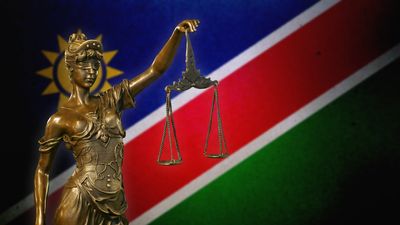Namibia Appoints Female Justices to its Supreme Court for the First Time
For the first time in its history, Namibia has officially appointed female justices to its Supreme Court.
Namibia has appointed three female justices to join its Supreme Court, in a historical move. This marks the first time since its independence in 1990 that the country will be appointing senior female legal officials to its highest court. Lady Justice Rita Makarau, Lady Justice Johanna Prinsloo, and Lady Justice Esi Schimming-Chase have all been appointed as acting judges of the Supreme Court. The one-year appointments were made by Namibia’s President, H.E Dr. Hage Geingob, on the recommendation of Namibia’s Judicial Service Commission. The appointments are slated to last from April 1, 2023 to March 31, 2024.
Justice Makarau previously, she served as a Judge of the Supreme Court of Zimbabwe and was the Judge-President of the High Court of Zimbabwe. Makarau’s appointment has been scrutinized by opposition parties in Namibia because of her alleged ties to Zimbabwe’s ruling ZANU-PF party. (Namibia’s legal system allows legal practitioners to work across borders as long as they are registered.)
In a statement to Voice of America, Ruth Herunga, chairperson of the Namibia Women Lawyers Association, said that the recent development can be seen as the proverbial breaking of a glass ceiling.
Herunga also told VOA that although women in many African countries have access to political power, there is still underrepresentation of women at the highest levels of the judiciary across Africa. Herunga noted that with these appointments, Namibia would join other countries across the world who are recruiting women judges to join its most esteemed legal offices.
“It is now recognized that the contribution of women judges worldwide and their active participation at all levels of decision making is essential to the achievement of equality and democracy. With these appointments, Namibia also joins the ranks of other countries both on the continent as well as the world who have in recent times already appointed women judges to the highest court,” Herunga said.
Namibia’s minister of justice, Yvonne Dausab, said that the appointments were a step in the right direction, because a balanced representation of demographics would give more people faith in the country’s legal system.
“We anticipate that over the next few months there are going to be a lot of cases that involve a variety of issues and also a variety of people. You want to make sure that the bench reflects those demographics that people come from so that people have confidence in the system,” Dausab said.
Ndilimeke Auala of the Namibia Institute for Democracy shared the same sentiment, stating the appointments would strike a balance in Namibia’s Supreme Court judgments.
“Society and our processes only flourish with equal representation; Now the female judges must be held to the same standard we hold the male judges, they will be judged by the way they defend the weak in society and speak truth to power. They have the chance to influence policy to improve [sic] an equal society,” Auala said.
- Namibia Announces Special Court in Response to #ShutItDown Protests ›
- This Photographer is Suing The SA Government For R2.1 Billion Over His Photo of Nelson Mandela ›
- What the US Anti-Abortion Ruling Means for Africa ›
- Namibian Queer Community Secure Another Landmark Win in Court - Okayplayer ›
- As Judicial Systems Continue to Fail, Nigerians Turn to Alternative Means - Okayplayer ›
- These Are The Key Faces Shaping Namibia’s Upcoming Elections - Okayplayer ›
- Hopes and Fears of Namibians Ahead of Tomorrow's Elections - Okayplayer ›
- Will Namibia’s Ruling Party Retain Power? - Okayplayer ›
- Namibia Has Elected its First Female President - Okayplayer ›
